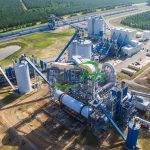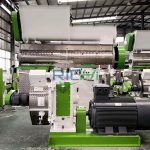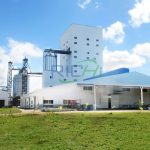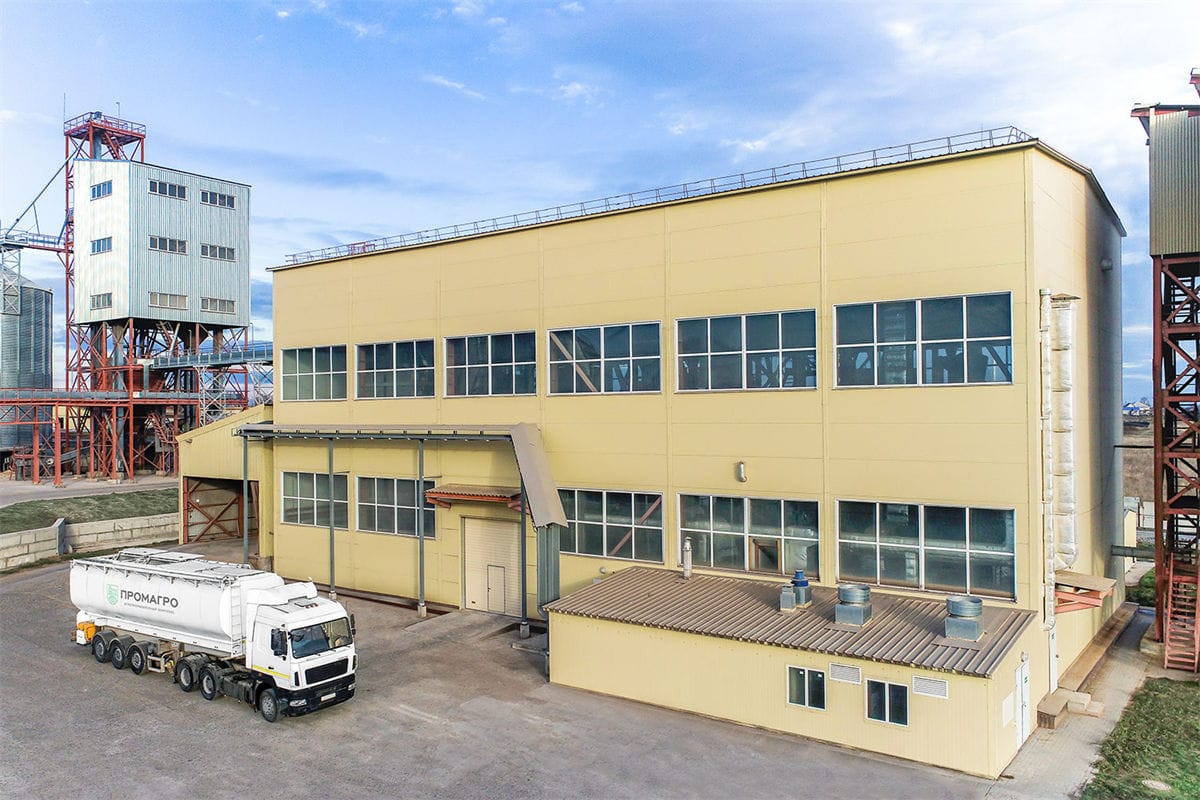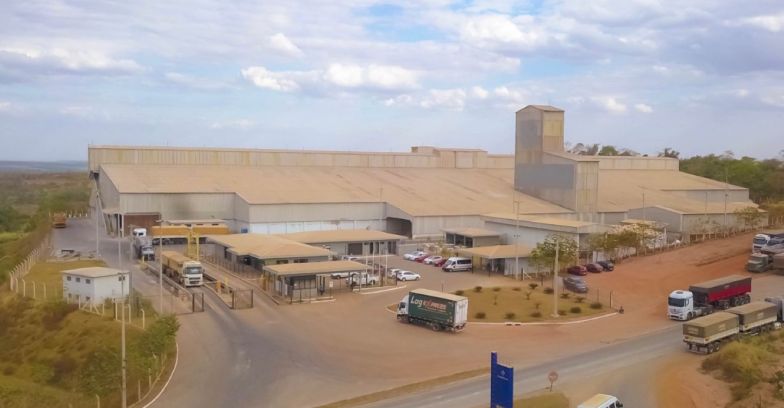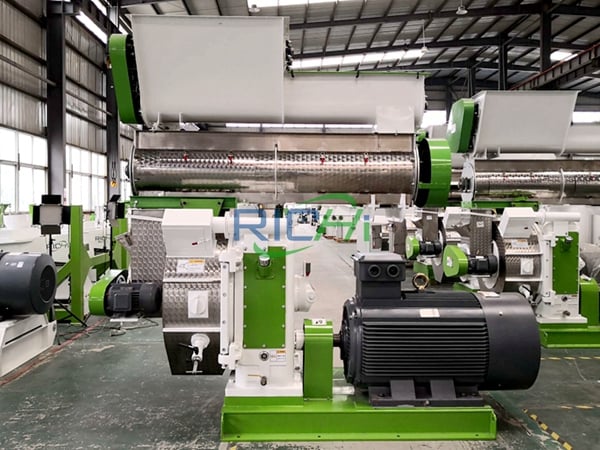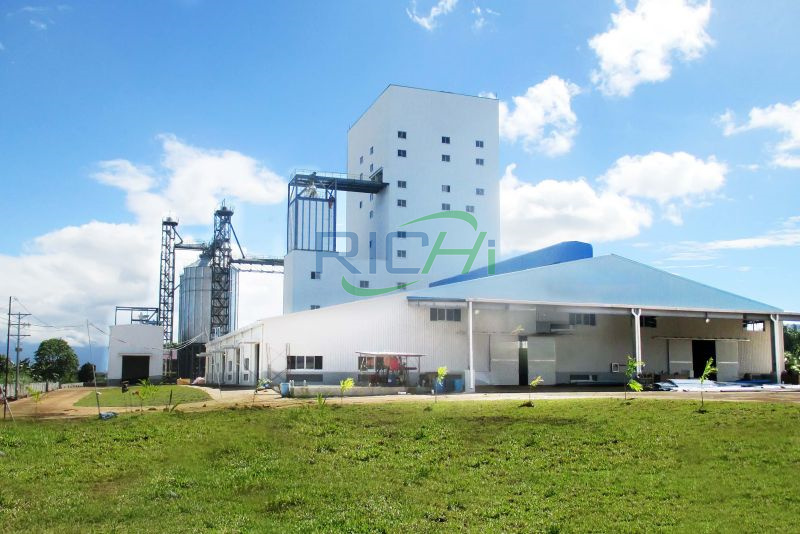Pakistan, with its vast agricultural resources and growing livestock sector, presents a compelling case for the establishment of modern animal feed mill plants. As the country strives to enhance its agricultural productivity, ensure food security, and boost economic growth, the development of a robust animal feed industry emerges as a critical factor in achieving these goals.
This article explores the multifaceted reasons why building an animal feed mill plant in Pakistan is not just a business opportunity, but a strategic investment in the nation’s future.
Addressing the Growing Demand for Animal Protein
Pakistan’s population is rapidly growing and urbanizing, leading to an increased demand for animal-based protein sources such as meat, milk, and eggs. This rising demand necessitates a corresponding growth in livestock production, which in turn requires a reliable supply of high-quality animal feed. An animal feed mill plant would play a crucial role in meeting this demand by:
- Producing consistent, nutritionally balanced feed for various livestock species
- Enabling farmers to optimize animal growth and productivity
- Supporting the expansion of Pakistan’s livestock sector to meet growing protein demands
By addressing these fundamental needs, the feed mill plant would contribute significantly to Pakistan’s food security goals and help reduce reliance on imports of animal products.
Leveraging Pakistan’s Agricultural Resources
Pakistan is blessed with abundant agricultural resources, including fertile land, diverse climatic zones, and a variety of crops suitable for animal feed production. An animal feed mill plant would create new opportunities to leverage these resources more effectively by:
- Increasing demand for locally grown feed ingredients such as maize, wheat, rice, and oilseeds
- Encouraging crop diversification and promoting the cultivation of specialized feed crops
- Creating value-added products from agricultural by-products and residues
This increased utilization of domestic agricultural resources would not only support the feed mill’s operations but also contribute to the overall growth and diversification of Pakistan’s agricultural sector.
Driving Technological Innovation in Agriculture
The establishment of a modern animal feed pellet production line would serve as a catalyst for technological innovation in Pakistan’s agricultural industry. By incorporating state-of-the-art equipment and processes, the plant would:
- Introduce advanced feed formulation and production techniques
- Showcase the benefits of automation in improving efficiency and product quality
- Encourage the adoption of precision livestock farming practices
This influx of technology and know-how could have far-reaching effects, potentially spurring innovation in other sectors of Pakistan’s agricultural and food processing industries.
Enhancing Livestock Productivity and Farmer Incomes
One of the most significant benefits of building an animal feed mill plant in Pakistan lies in its potential to dramatically enhance livestock productivity. By providing consistent, high-quality feed, the plant would enable farmers to:
- Improve animal growth rates and feed conversion efficiency
- Increase milk yields in dairy animals
- Enhance the quality of meat and eggs produced
These improvements would translate into increased profitability for livestock farmers, potentially lifting many out of poverty and stimulating rural economic development.
Supporting Import Substitution and Export Potential
Pakistan has been striving to reduce its reliance on imported food products and increase domestic production. An animal feed mill plant would support this strategy by:
- Reducing the need for imported animal feed and feed additives
- Improving the competitiveness of Pakistani livestock products in the domestic market
- Potentially creating opportunities for feed exports to neighboring countries
As the quality and efficiency of Pakistani livestock production improve, there may also be increased potential for exporting animal products, further contributing to the country’s agricultural export goals.
Creating Employment Opportunities and Skill Development
The establishment and operation of an animal feed mill plant would create a range of employment opportunities, both directly and indirectly. These would include:
- High-skilled positions in plant management, quality control, and technical operations
- Manufacturing and maintenance jobs at the plant
- Indirect employment in related industries such as transportation, packaging, and agricultural input supply
Moreover, the plant would serve as a training ground for developing a skilled workforce familiar with modern feed production technologies and management practices. This skill development would have positive spillover effects on the broader agricultural and food processing sectors.
Promoting Sustainable Agricultural Practices
A modern animal feed mill plant has the potential to promote more sustainable agricultural practices in Pakistan’s livestock industry. By optimizing feed formulations and production processes, the plant could contribute to:
- Reducing the environmental footprint of livestock production through improved feed efficiency
- Minimizing waste and maximizing the use of agricultural by-products in feed production
- Implementing precision feeding techniques to reduce nutrient excretion and environmental impact
These sustainability initiatives would align with global trends towards more environmentally responsible agriculture and could enhance the reputation of Pakistani livestock products in both domestic and international markets.
Strengthening Food Security and Rural Development
The establishment of an animal feed mill plant would play a crucial role in strengthening Pakistan’s food security by:
- Ensuring a stable supply of high-quality feed for livestock production
- Reducing vulnerability to global feed price fluctuations
- Enhancing the resilience of the livestock sector to climate change and other external shocks
Furthermore, by stimulating rural economic activity and creating new market opportunities for farmers, the plant would contribute significantly to rural development and help stem rural-to-urban migration.
Attracting Foreign Investment and Partnerships
A modern animal feed mill plant could serve as a showcase project to attract foreign investment and partnerships in Pakistan’s agricultural sector. By demonstrating the country’s commitment to agricultural modernization and its potential for growth, the plant could:
- Attract technology transfers and knowledge sharing from global industry leaders
- Encourage joint ventures and collaborations with international feed companies
- Stimulate investment in related industries such as livestock farming and food processing
These partnerships and investments would further accelerate the development of Pakistan’s agricultural sector and contribute to overall economic growth.
Challenges and Considerations
While the prospects of building an animal feed mill plant in Pakistan are promising, several challenges and considerations must be addressed:
- Infrastructure Development: Ensuring reliable power supply, transportation networks, and storage facilities will be crucial for the plant’s efficient operation.
- Quality Control and Regulation: Implementing stringent quality control measures and navigating the regulatory environment will be essential for producing safe, high-quality feed.
- Farmer Education: Educating farmers about the benefits of commercial feed and proper animal nutrition may be necessary to build a strong customer base.
- Raw Material Sourcing: Establishing reliable supply chains for raw materials, particularly during seasonal fluctuations, will be critical for consistent production.
- Market Competition: The plant may face competition from traditional feed sources or informal feed producers, necessitating a strong value proposition and marketing strategy.
Conclusion: A Strategic Investment in Pakistan’s Agricultural Future
Building an animal feed mill plant in Pakistan represents far more than just a business venture. It is a strategic investment in the country’s agricultural future, with the potential to catalyze widespread improvements across the livestock and crop production sectors.By addressing the growing demand for animal protein, leveraging Pakistan’s agricultural resources, and driving technological innovation, the plant would play a pivotal role in modernizing and strengthening the country’s agricultural sector. The potential for enhancing livestock productivity, supporting import substitution, creating employment opportunities, and promoting sustainable practices further underscores the significance of this investment.While challenges exist, they are not insurmountable, and the long-term benefits for Pakistan’s economy and food security far outweigh the initial hurdles. As Pakistan continues to pursue its goals of agricultural modernization, food self-sufficiency, and economic diversification, the establishment of an animal feed mill plant stands out as a transformative step towards realizing these ambitions.In conclusion, building an animal feed mill plant in Pakistan is not just an opportunity for business growth, but a chance to contribute meaningfully to the nation’s development. Such a venture has the potential to improve livelihoods, enhance food security, and position Pakistan as a leader in modern, sustainable livestock production in the region.


